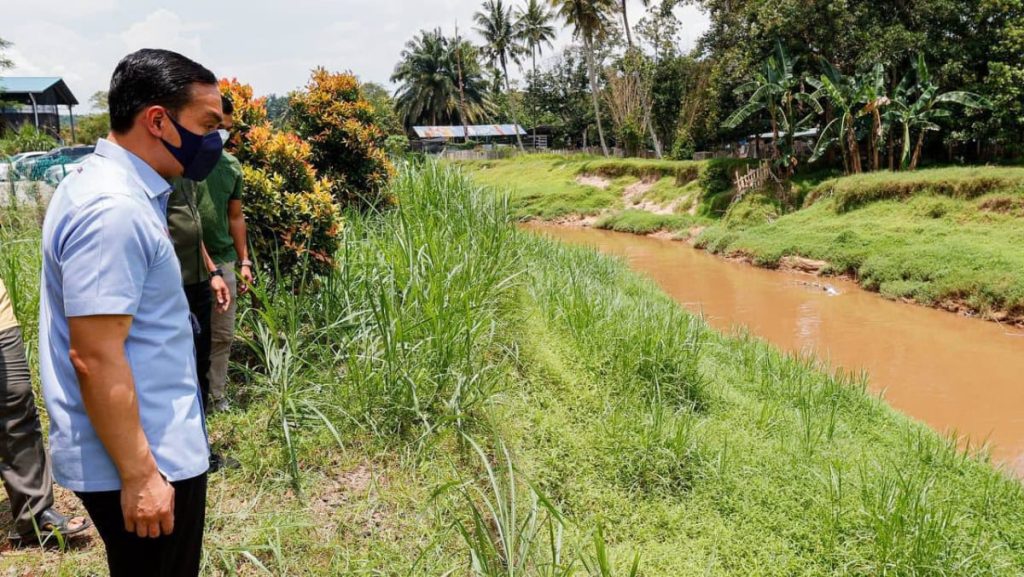Johor’s chief minister, Mr Onn Hafiz Ghazi, has taken a firm stance against toxic chemical pollution in the state, ordering the police to form a special task force to address the issue. The foul odour, which has been plaguing several areas in Johor, has prompted the closure of three schools in Kempas due to the risk of exposure to fumes. An investigation by various state departments revealed that chemicals in the river pose a risk to public health, with potentially toxic components contaminating the air and causing a strong and unpleasant odour.
Residents in Taman Daya, Taman Mount Austin, Taman Istimewa, and Kampung Melayu Pandan reported a disturbing smell spreading across residential areas causing dizziness and headaches. The local river was described as black, murky, and oily, leading to concerns among residents. The state’s Department of Environment detected ammonia gas levels exceeding normal thresholds, and suspicious chemicals were found dumped along the banks of rivers in the Desa Tropika Industrial Area of Johor. The state government condemned the illegal chemical waste disposal and urged the public to report any information on pollution activities.
The situation escalated on Sep 9, when strong chemical odours were reported in several locations in Johor. Tebrau MP, Jimmy Puah, received complaints from local villages, and the odour caused some residents to vomit. Skudai assemblyman Marina Ibrahim also reported residents experiencing headaches, sore throats, and vomiting due to the strong smell. Authorities were quick to respond to the situation, with Mr Jimmy contacting the fire station chief in Kempas to provide emergency aid to affected residents. Both officials assured the public that they were monitoring complaints and taking necessary action.
The issue of pollution in Johor has been a recurring concern, with Singapore’s former prime minister, Lee Hsien Loong, expressing worries about the long-term impact on the Johor river’s yield. In 2019, PUB, Singapore’s national water agency, had to temporarily close its waterworks in Kota Tinggi due to high ammonia levels traced back to a burst reservoir at a biocomposite centre near an oil-palm mill in Sedenak, Johor. Prior to this incident, authorities had discovered the illegal dumping of toxic waste at Sungai Kim Kim in Pasir Gudang, resulting in toxic fumes affecting thousands of residents and forcing the closure of around 100 schools in the area.
The Malaysian state of Johor is facing a serious environmental crisis with the presence of toxic chemicals in its rivers, leading to health risks for residents. The state government has implemented measures to address the issue, including the closure of schools in affected areas and the formation of a special task force to tackle pollution activities. Residents have reported adverse effects due to the strong chemical odours emanating from contaminated rivers, highlighting the urgency of the situation. Authorities have conducted investigations and taken action against those responsible for the illegal dumping of chemicals, emphasizing the need for public cooperation to combat pollution effectively.
In light of recent incidents and ongoing concerns over pollution in Johor, it is crucial for the state government to work closely with relevant agencies to enforce stricter regulations and prevent further harm to the environment and public health. Public awareness and participation are essential in identifying and reporting pollution activities, while swift action by authorities can mitigate the impact of toxic substances on communities. The collaboration between Malaysia and neighboring countries like Singapore is also vital to address transboundary pollution issues and ensure the sustainable management of shared water resources. By implementing comprehensive strategies and holding polluters accountable, Johor can protect its environment and safeguard the well-being of its residents for the future.













